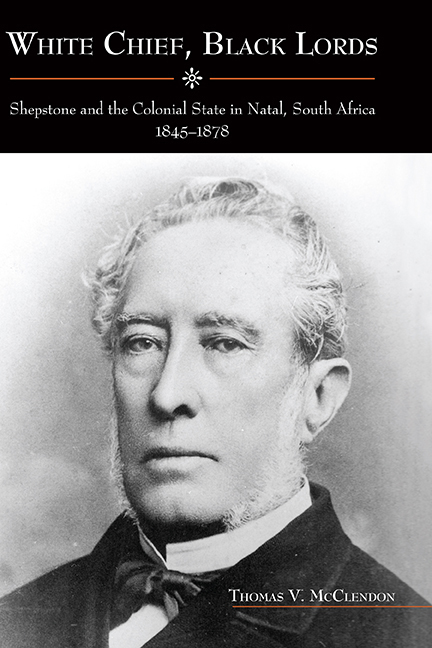Book contents
- Frontmatter
- Dedication
- Contents
- List of Illustrations
- Acknowledgments
- List of Abbreviations
- 1 Introduction
- 2 The Man Who Would Be Inkosi
- 3 Witchcraft and Statecraft
- 4 You Are What You Eat Up
- 5 Guns, Rain, and Law
- 6 From Show Trial to Shallow Reform
- 7 Conclusion
- Notes
- Glossary
- Bibliography
- Index
- Rochester Studies in African History and the Diaspora
- Frontmatter
- Dedication
- Contents
- List of Illustrations
- Acknowledgments
- List of Abbreviations
- 1 Introduction
- 2 The Man Who Would Be Inkosi
- 3 Witchcraft and Statecraft
- 4 You Are What You Eat Up
- 5 Guns, Rain, and Law
- 6 From Show Trial to Shallow Reform
- 7 Conclusion
- Notes
- Glossary
- Bibliography
- Index
- Rochester Studies in African History and the Diaspora
Summary
The institution, status and role of traditional leadership … are recognised, subject to the Constitution … . The courts must apply customary law when that law is applicable.
Constitution of the Republic of South Africa, 1996In Citizen and Subject, Mahmood Mamdani argued that the structures developed by Theophilus Shepstone in colonial Natal laid the foundation for what he called “decentralized despotism” throughout colonial Africa. He insisted that South African apartheid was a version of this system that was different mainly in name, erasing the usual analytical distinction made between settler state South Africa and colonial Africa. He also argued that decolonization failed to dismantle the fundamentally nondemocratic structures of rule in rural Africa, and that Africans in rural areas were therefore still subjects, rather than citizens, of their postcolonial states. The South African constitution, adopted in the same year that Mamdani's book was published, seems to bear out at least part of his argument, in that this famously liberal and rights-oriented charter continues to affirm the hierarchical and non-democratic institutions of traditional leadership and the patriarchal norms of customary law, though both are made subject to the imperatives of the broader constitution. The ambiguous legacy of the contradictory institution of indirect rule, however, is marked by the circular language in the constitution declaring that customary law applies “when that law is applicable.” In other words, a century and a half after the colonization of Natal, a South Africa now under democratic rule has yet to resolve the tension inherent in a colonial heritage that was dominantly Western in outlook but, out of its own weakness and for its own ends, incorporated, while distorting, African approaches to rule.
What is the historical significance of Shepstone's tenure in colonial Natal? Jeff Guy has argued that colonial rule in Natal came about through compromise—which he terms an “accommodation of patriarchs”—rather than through conquest. He suggests, therefore, that Natal's version of indirect rule was built on the shared interest of colonial and African senior men in controlling and appropriating the labor of women and juniors. While that was indeed an important outcome of the establishment of the institutions developed under and after Shepstone, however, our historical journey does not support the idea that this was the result of any overarching plan.
- Type
- Chapter
- Information
- White Chief, Black LordsShepstone and the Colonial State in Natal, South Africa, 1845–1878, pp. 125 - 134Publisher: Boydell & BrewerPrint publication year: 2010

